Looking into the future of computing, we find an ever-expanding horizon shaped by the transformative force of cloud computing and AI technologies.
This technological frontier is not just a fleeting trend, but the door to a landscape that continues to redefine the way we interact with data and applications. Cloud computing is the linchpin of digital innovation, offering unprecedented scalability, agility, and accessibility.

Cloud Computing | CIO Business Review
The horizon of the technological landscape is painted with the promise of more sophisticated and intelligent cloud solutions driven by advancements in artificial intelligence, machine learning, and quantum computing.
Security measures are poised to become even more robust, addressing concerns and ensuring safe and compliant data handling. The future of cloud computing is a realm where boundaries blur, collaboration thrives, and businesses navigate a landscape of endless possibilities, reshaping the fabric of our digital existence.
What is Cloud Computing
Investopedia says, “Cloud computing is the delivery of different services through the Internet, including data storage, servers, databases, networking, and software.”
In simpler terms, cloud environments are like the magical bag from Harry Potter—Hermione Granger’s beaded handbag. This enchanted bag is far more than it seems on the outside; it’s a bottomless space where Hermione can store an incredible variety of items, from clothes to books to snacks.

Hermiones Bag | Coleka
No matter how much she puts into it, the bag remains light and easy to carry.
In the world of technology, the cloud is like Hermione’s magical bag.
Instead of lugging around your computer with all its data and applications, you can store them in the cloud—a virtual space accessible from anywhere with an internet connection.
Like Hermione’s bag, the cloud allows you to keep an immense amount of information without carrying it physically. Plus, just as Hermione can summon whatever she needs from her bag at a moment’s notice, you can access your data and applications instantly, making your digital experience seamless and convenient.
Cloud computing is a transformative force, unlocking a world where computing resources and digital services are boundless. It offers scalability, flexibility, and cost efficiency. It enables users to adapt resources to changing demands and eliminates the need for hefty upfront investments.

What Is Cloud Computing? | Scout Technology Guides
With global accessibility, cloud services foster collaboration and innovation worldwide. The robust security measures, reliability, and business continuity features make it a trusted solution, while collaborative ecosystems and democratized access to technology empower businesses of all sizes.
Cloud computing’s prowess in machine learning, big data analytics, and environmental sustainability further solidifies its role as a driving force in shaping the digital future. For companies entering the technological landscape, it is a no-brainer. Even The CEO of Animoto, Brad Jefferson, says, “Cloud computing is really a no-brainer for any start-up because it allows you to test your business plan very quickly for little money.”
Cloud Computing Trends
Cloud computing is positioned for continued growth, evolution, and transformative impact across various industries. Key trends within the industry include:

Trend Analysis: How to Understand Your Audience’s Search Behavior | Search Engine Journal
Advanced Technologies Integration
Cloud computing is expected to integrate and synergize with advanced technologies such as artificial intelligence (AI), machine learning (ML), and edge computing. This integration will enhance the capabilities of cloud technology, making them more intelligent, adaptive, and responsive. If you’d like to learn more about AI, check out our latest podcast!

5 Advanced Technology of the Future | Medium
Quantum Computing
As quantum computing advances, the cloud will likely play a pivotal role in providing access to quantum processing power. Quantum computing in the cloud could revolutionize complex problem-solving and accelerate scientific and technological breakthroughs. Click here for the top 5 quantum computing penny stocks of 2023.

Google’s Groundbreaking Quantum Computer has shattered all expectations | Medium
Increased Security Measures
With an increasing emphasis on data security and privacy, future cloud computing solutions are expected to implement even more sophisticated security measures. Encryption, identity management, and compliance standards will continue to evolve to address growing concerns.

14 Ways to Improve Security for Customers | Call Centre Helpers
Hybrid and Multi-Cloud Environments
Organizations will likely adopt hybrid and multi-cloud strategies, leveraging public and private cloud technology to optimize performance, cost, and flexibility. This approach allows businesses to tailor their cloud infrastructure to specific needs.
Edge Computing Integration
Edge computing, working in tandem with the cloud, is anticipated to become more prevalent. This will enable data processing closer to the source of generation processing data, reducing latency and enhancing real-time capabilities for applications like IoT and autonomous systems.
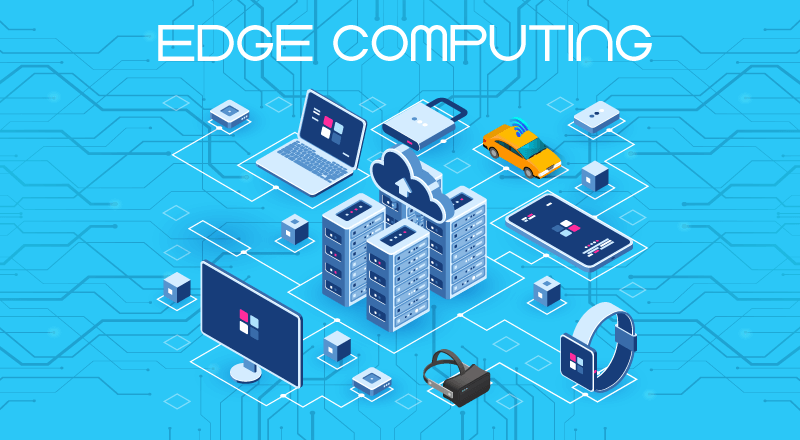
What is Edge Computing | AKCP
Serverless Computing Dominance
Serverless computing, where developers focus on writing code without managing server infrastructure, is expected to gain prominence. This model offers cost efficiency, scalability, and faster development cycles.
Industry-Specific Cloud Solutions
Cloud services tailored to specific industries, such as healthcare, finance, and manufacturing, will become more prevalent. These industry-specific clouds will address unique regulatory, compliance, and functionality requirements.
Sustainability and Green Computing
As environmental concerns rise, multiple cloud providers will likely invest more in sustainable and energy-efficient practices. The future of cloud computing is expected to witness increased focus on green technologies and initiatives to reduce carbon footprints.

What is Green Computing? | Webline Services Inc
More Seamless User Experiences
Cloud technology will continue to strive for seamless user experiences, making it easier for individuals and businesses to access and utilize computing resources. User interfaces, integration capabilities, and overall user-friendliness will be key areas of improvement.
Global Expansion of Cloud Services
Companies that offer a cloud computing service will expand their global presence, establishing data centers in new regions to enhance service availability, reduce latency, and comply with various data protection and sovereignty regulations.
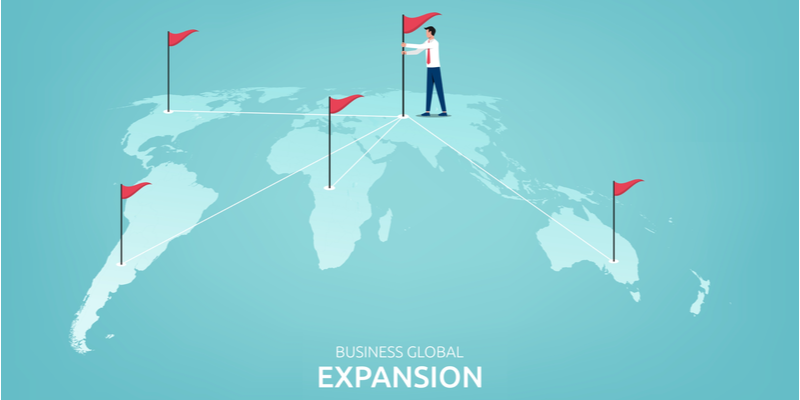
Business Global Expansion | AirSwift
In essence, the presumed future of cloud computing revolves around ongoing innovation, adaptability to emerging technologies, heightened security measures, and an increasingly tailored approach to meet diverse industry needs. As the digital landscape evolves, the cloud computing trend will remain a central force, driving efficiency, collaboration, and digital transformation across the spectrum.
How to invest in cloud services
Investing in cloud computing involves strategic considerations and a well-informed approach. Here’s a comprehensive guide to help you navigate the investment landscape for cloud computing:
Research Cloud Computing
Gain a solid understanding of cloud computing, including its key players, future trends, and cloud providers’ services.
Consider a Mix of Stocks
Diversify your investments by including a mix of cloud computing stocks from different industry segments. This includes infrastructure providers, software-as-a-service (SaaS) companies, and more.
:max_bytes(150000):strip_icc()/diversification.asp-FINAL-b2f2cb15557b4223a653c1389389bc92.png)
Diversification | Investopedia
Identify Key Players
Look for companies actively involved in cloud computing. This includes major cloud service providers like Amazon Web Services (AWS), Microsoft Azure, and Google Cloud, as well as companies offering cloud-related services and solutions.

Key Players | Navigo
Follow Industry News
Keep yourself updated on the latest developments in the technology computing industry. Subscribe to industry publications, follow reputable tech news outlets, and attend relevant conferences.
Explore Company Filings
Examine official filings and reports of companies you’re interested in. Publicly traded companies are required to submit regular reports to regulatory authorities. Check the Securities and Exchange Commission (SEC) website or equivalent regulatory bodies.
Leverage Financial Tools
Use stock screeners provided by financial websites or brokerage platforms. These tools allow you to filter stocks based on specific criteria, such as industry sector, market capitalization, or financial metrics.
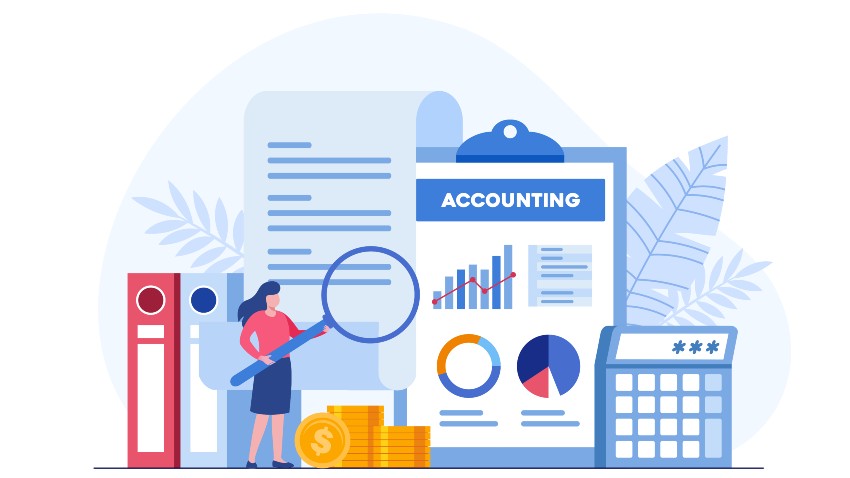
Financial Management Tools | Cflow
Consider Technological ETFs
Look into exchange-traded funds (ETFs) or mutual funds focused on technology or cloud computing. Some funds specifically target companies in the cloud computing sector, providing diversification.
Participate in Industry Events
Attend or follow conferences and events related to cloud computing. These gatherings often showcase vital players and emerging companies in the field.
Check Major Stock Exchanges
Investigate stock exchanges like the New York Stock Exchange (NYSE) or Nasdaq, where many technology companies are listed. Look for companies with a focus on cloud computing.
Choose a Reliable Brokerage
Utilize online brokerage platforms like Questrade or Interactive Brokers to execute your stock trades in the technology sector.

Questrade | Wikipedia
Monitor The Tech Landscape
The tech landscape evolves rapidly. Regularly reassess your investment strategy, staying informed about technological advancements and changes in market conditions.
Remember that all investments carry risks, and conducting thorough research or consulting with financial professionals is crucial before making decisions. Additionally, market conditions and the competitive landscape may change, so stay vigilant and adapt your strategy accordingly.
Top Cloud Providers
Here are some of the top companies in cloud computing:
Amazon Web Services (AWS) (NASDAQ: AMZN)
Amazon, founded in 1994 by Jeff Bezos, is an American multinational technology and e-commerce company based in Seattle, Washington. Originally an online bookstore, Amazon has become one of the world’s largest and most diverse technology companies. Its business has expanded to include many products and services, such as e-commerce, cloud computing, artificial intelligence, digital streaming, and more.

Amazon Web Services Review | PCMag
Amazon Web Services (AWS) is Amazon’s cloud computing division. Launched in 2006, AWS has become a global leader in providing comprehensive cloud computing technology. AWS offers a vast array of computing energy, storage solutions, databases, machine learning, analytics, and other tools that enable businesses and individuals to build and deploy scalable and flexible applications. AWS has played a pivotal role in shaping the computing industry, serving millions of customers worldwide, including startups, enterprises, and government organizations.
Key Stats:
EPS TTM– 1.91
PE Ratio TTM– 79.55
Revenue TTM– 554,028,000
Net Income TTM- 20,079,000
Microsoft Azure (MSFT)
Microsoft, founded in 1975 by Bill Gates and Paul Allen, is a multinational technology company headquartered in Redmond, Washington. It is one of the world’s largest and most influential technology corporations, known for its software products, personal computers, and other technology services. Microsoft’s software portfolio includes the widely used Windows operating system, Microsoft Office suite, and a variety of productivity and entertainment applications.
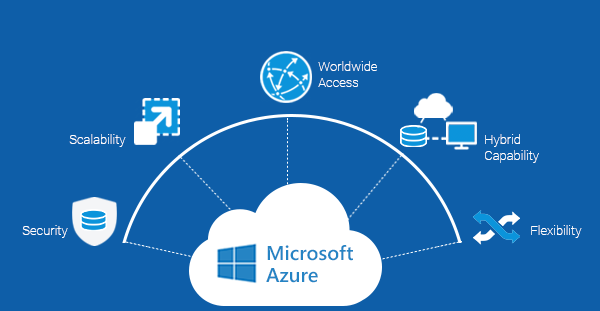
Microsoft Azure | Teleco
Microsoft Azure, often referred to as Azure, is the cloud computing platform and services provided by Microsoft. Launched in 2010, Azure offers a comprehensive suite of cloud-based services, including virtual computing, storage, databases, machine learning, and more. It enables organizations to build, deploy, and manage applications and services through Microsoft’s global network of data centers. Businesses of all sizes widely use Azure for its scalability, flexibility, and integration with Microsoft’s other products and services. It has become a key player in the cloud computing industry, competing with other major cloud providers.
Key Stats:
EPS TTM– 10.30
PE Ratio TTM– 36.51
Revenue TTM– 218,310,000
Net Income TTM- 77,096,000
Google Cloud Platform (GCP) (GOOG)
Google, established in 1998 by Larry Page and Sergey Brin, is a multinational technology company based in Mountain View, California. Initially known for its search engine, Google has expanded its reach to various technology sectors, including online advertising, software development, and hardware products like smartphones and smart home devices. Google’s mission is to organize the world’s information and make it universally accessible and helpful.
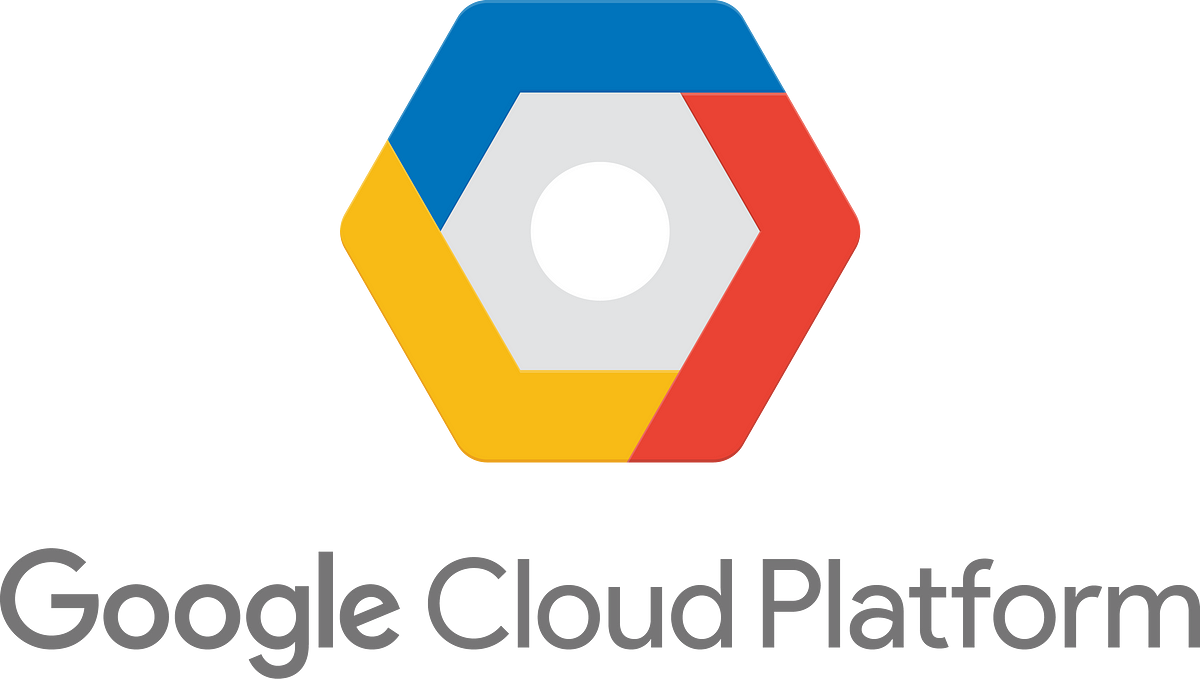
Google Cloud Platform | Medium
Google Cloud Platform (GCP) is the cloud computing suite offered by Google. Launched in 2008, GCP provides various cloud-based services, including computing energy, storage, databases, machine learning, and data analytics. It is designed to help businesses and developers build, deploy, and scale applications efficiently. Google Cloud Platform leverages Google’s global infrastructure and expertise in data management and analysis.
It competes with other major cloud providers in delivering cloud solutions to enterprises and organizations across the globe.
Key Stats:
EPS TTM– 5.22
PE Ratio TTM– 27.00
Revenue TTM– 297,132,000
Net Income TTM- 66,732,000
IBM Cloud (IBM)
IBM, or International Business Machines Corporation, is a global technology and consulting company with a long-standing history in the computing industry. Founded in 1911, IBM has played a pivotal role in developing computer hardware, software, and various technologies. The company innovates and contributes to mainframe, artificial intelligence, and quantum computing.

IBM Cloud | The Futurum Group
IBM Cloud is the cloud computing division of IBM, offering a wide range of cloud technologies and solutions. Launched in 2011, IBM Cloud provides infrastructure as a service (IaaS), platform as a service (PaaS), and software as a service (SaaS) to businesses and organizations. IBM Cloud is designed to support enterprises in their digital transformation journey, providing tools for building, deploying, and managing applications in the cloud. The platform includes services related to data and analytics, AI and machine learning, blockchain, and more. IBM’s cloud offerings cater to clients’ diverse needs across various industries, emphasizing security, scalability, and hybrid cloud solutions. Check out our blog post if you’d like to learn more about AI and its potential stock bubble.
Key Stats:
EPS TTM– 7.75
PE Ratio TTM– 21.10
Revenue TTM– 61,171,000
Net Income TTM- 6,925,000
Alibaba Cloud (BABA)
Alibaba Group, founded in 1999 by Jack Ma, is a Chinese multinational conglomerate with diverse businesses, including e-commerce, retail, cloud computing, digital entertainment, and more. Alibaba is one of the world’s largest and most influential technology companies, playing a crucial role in shaping the digital landscape in China and beyond.
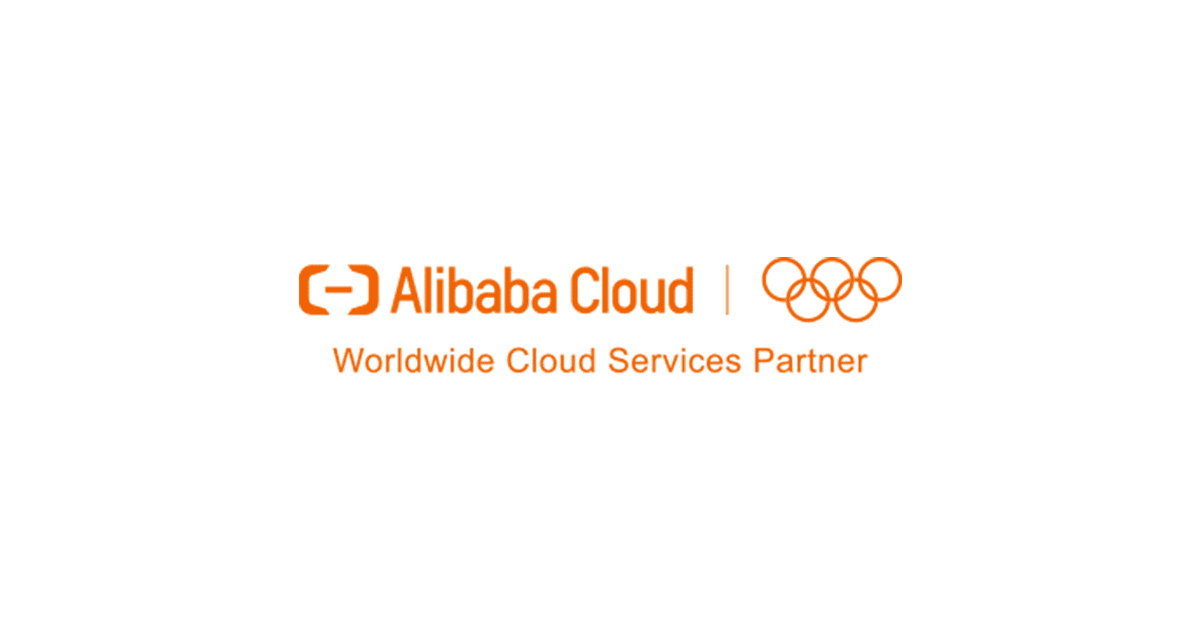
Alibaba Cloud | Alibaba
Alibaba Cloud, a subsidiary of Alibaba Group, is the company’s cloud computing arm. Established in 2009, Alibaba Cloud provides a comprehensive suite of cloud services, including computing power, storage, databases, big data analytics, artificial intelligence, and Internet of Things (IoT) solutions. It is a leading cloud service provider in Asia and competes globally, serving businesses, developers, and enterprises with scalable and reliable cloud infrastructure. Alibaba Cloud’s extensive network of data centers enables it to deliver cloud services with high performance, flexibility, and security to clients worldwide.
Key Stats:
EPS TTM– 7.13
PE Ratio TTM– 10.87
Revenue TTM– 914,902,000
Net Income TTM- 132,646,000
Tencent Cloud (TCEHY)
Tencent is a Chinese multinational conglomerate with a strong presence in various internet-related services and products. Founded in 1998, Tencent has become one of the largest and most influential technology companies globally. It is known for its diverse offerings, including social media platforms, online gaming, digital advertising, and financial services.
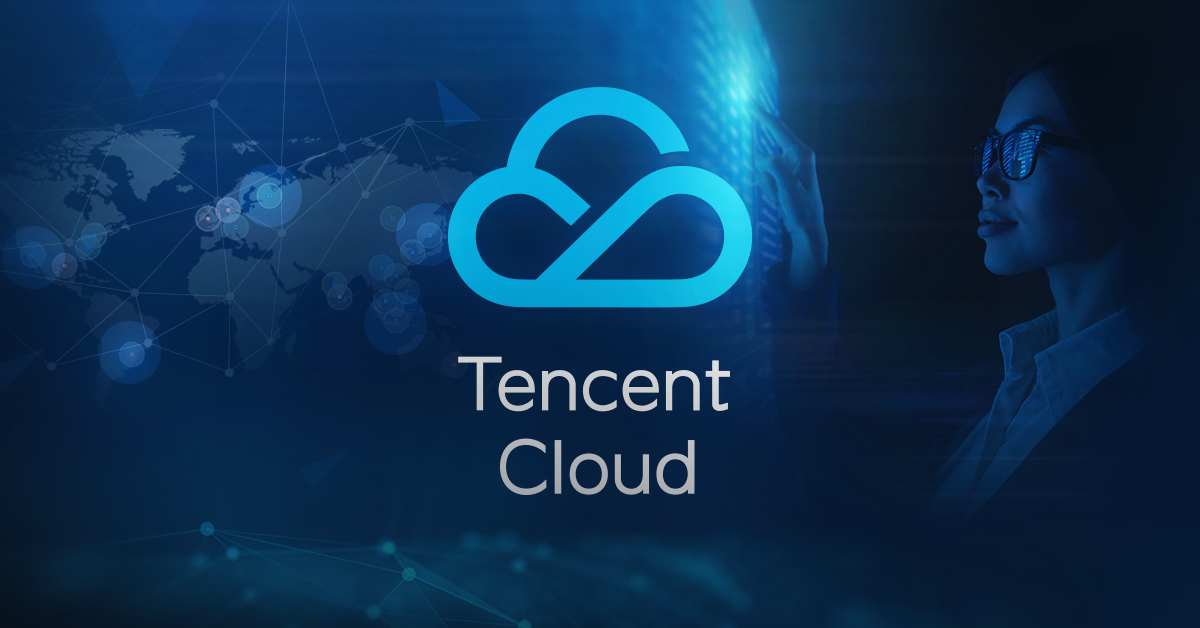
Tencent Cloud | Sereno Cloud Solution
Tencent Cloud, a subsidiary of Tencent, is the company’s cloud computing arm. Tencent Cloud provides a comprehensive suite of cloud platforms, including infrastructure as a service (IaaS), platform as a service (PaaS), and software as a service (SaaS). It offers solutions like cloud computing, artificial intelligence, data analytics, and the Internet of Things (IoT). Tencent Cloud has become a significant player in the cloud service industry, serving businesses and enterprises with its scalable and innovative cloud services.
Keep in mind that the cloud tech industry is dynamic, with new entrants and changes in market dynamics. It’s advisable to check the latest market reports and updates for the most current information on top cloud computing companies.
Key Stats:
EPS TTM– 2.82
PE Ratio TTM– 13.40
Revenue TTM– 598,773,000
Net Income TTM- 194,459,000
If you would like to read more about cloud computing and how to invest in it, click here.
The Future of Cloud Computing
The future of computing unfolds in the vast landscape shaped by the transformative force of cloud computing.
This isn’t just a trend but a doorway to a realm continually redefining how we interact with data and applications.
Cloud computing, with its scalability, agility, and accessibility, stands as the linchpin of digital innovation. As we gaze into the technological horizon, advancements in AI, machine learning, and quantum computing promise more sophisticated and intelligent cloud services.

Navigating The Future | Forbes
Robust security measures, seamless user experiences, and a commitment to sustainability further solidify cloud computing’s role in shaping our digital future.
To invest wisely in this evolving landscape, diversify your portfolio, stay informed on industry trends, and consider critical players like AWS, Azure, and Google Cloud.
The presumed cloud computing future also sees ongoing innovation, heightened security, and tailored solutions across industries, making cloud computing an enduring force in the digital revolution.
Disclosure/Disclaimer:
We are not brokers, investment, or financial advisers; you should not rely on the information herein as investment advice. If you are seeking personalized investment advice, please contact a qualified and registered broker, investment adviser, or financial adviser. You should not make any investment decisions based on our communications. Our stock profiles are intended to highlight certain companies for YOUR further investigation; they are NOT recommendations. The securities issued by the companies we profile should be considered high risk and, if you do invest, you may lose your entire investment. Please do your own research before investing, including reading the companies’ public filings, press releases, and risk disclosures. The company provided information in this profile, extracted from public filings, company websites, and other publicly available sources. We believe the sources and information are accurate and reliable but we cannot guarantee it. The commentary and opinions in this article are our own, so please do your own research.
Copyright © 2023 Edge Investments, All rights reserved.
